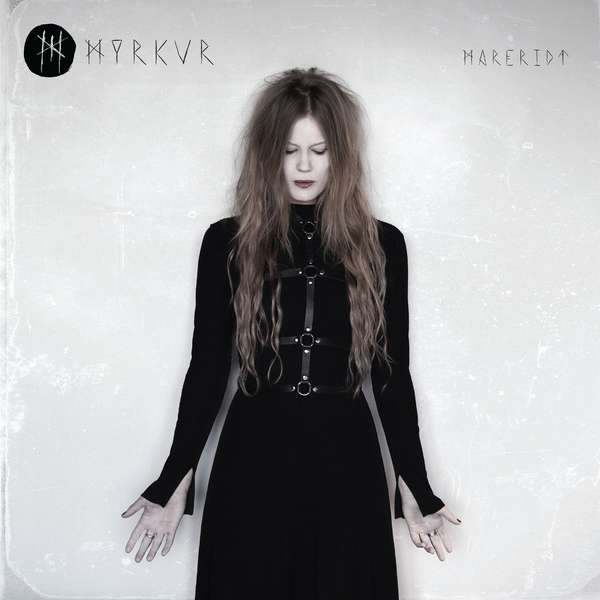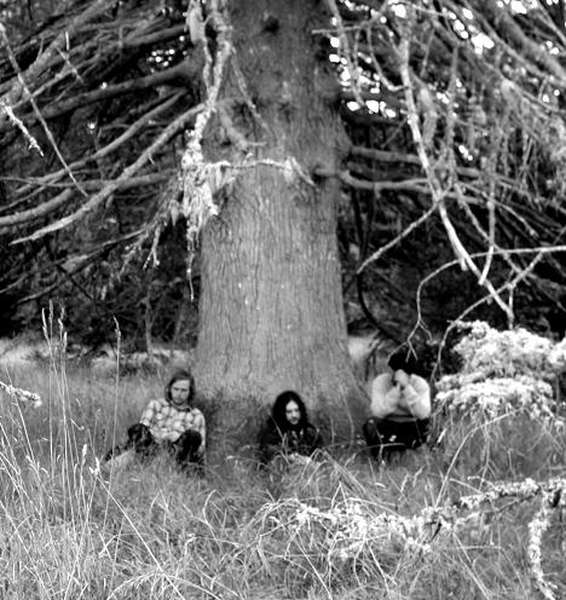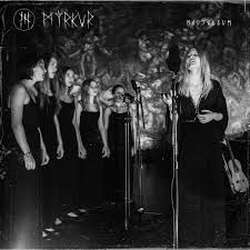Before dwelling into the extreme metal scene, Amalie Bruun was known from a few indie releases, which merged an alternative pop style with elements of traditional folk music. A self-defined black metal girl at heart, Bruun started moving away from her mellow side, and begun transforming into Myrkur, her black metal alter ego. Her project caused a turmoil in the black metal scene, first with the release of her self-titled EP, and then with her debut record.
In M, Bruun was embracing black metal at its most raw and chaotic. The fury and aggression of the genre, coupled with the traditional stylistic touches begun unfolding her vision. However, it also felt slightly incomplete as a whole, and that was something that her follow-up live album, Mausoleum came in to rectify. In her first live record, covering tracks from M, Myrkur revealed how deep her folk routes run. While promising M felt unbalanced and slightly rushed. On one hand, Bruun had done an excellent job with the production and performance aspects of the record, but it felt that there was a lot left unexplored. That is why Mausoleum was so effective, managing to smooth out this phenomenon and present an unfiltered and stripped down quality, hidden in M. Everything became clearer on that instant, and it opened up interesting future possibilities for Bruun's musical direction.
Mareridt is exactly this fulfillment. Instead of doubling down on black metal, Myrkur expands laterally to other forms. That does not mean that harsh riffs and the traditional black metal tones are no longer present. “Maneblot” features moments of such attitude, where the riffs roam with precision and purpose, acting as outbreaks from the smoother transition the opening track set. The clean vocal performance amidst the distorted guitars is an excellent touch, with Bruun's voice capable of cutting through the heavy veil and brilliantly coming to the front.
But most of the black metal in this record actually moves closer to the epic side of the genre, and particularly Bathory, a band she also covered in Mausoleum. Tracks like “The Serpent” presents a moment of such a grand manifestation, with a doom-like pace slowly unfolding, while the opening of “Elleskudt” screams with its Hammerheart legacy. What also pushes that side over the edge is the dark folk injection, coming through with a bleak perspective, and becoming a mesmerizing force. By extending the instrumentation, which ranges from violin, mandolin and folk drums to more obscure artefacts like the nychelharpa (ancient Swedish key harp,) the narrative gains depth. A return to tradition is necessary in getting in touch with some of these elements, and apart from singing part of the album in Danish, Bruun also performs the famous Kulnig (ancient Swedish herding call.) All these infusions continue a great tradition of the Scandinavian extreme metal scene, which pays respect to its past.
Even though the epic dimension of black metal is clearer and more concise, Bruun moves further outside the boundaries of the genre. Still hungry to expand the sonic territories of Myrkur, the music takes on characteristic of a more obscure, neofolk rock style, which is not dissimilar to the works of Chelsea Wolfe, who actually appears in “Funeral” and an additional bonus track. It binds perfectly with the melodic element of Mareridt, which acts as the connective tissue of this work. Despite the melody inherent in the core of Bruun's work, her music does not become lighter because of it, and the world she presents for the most part is dark and bleak, filled with mystery and sorrow.
Mareridt is a strong release, considering the evolution Myrkur underwent. The narrative is more cohesive, the vision this time around is much clearer. Where M lacked this cohesion, Mareridt sounds tight. The only moments in the work that appear, at least to me, to be a touch superfluous are the last two tracks, “Kaetteren,” which is a nicely composed folk track, but falls short compared to moments like “De Tre Piker,” and “Bornehjem” a creepy, atmospheric work that deviates from the dark, sorrowful tone. Nevertheless, Mareridt is the record where Myrkur exposes her personality more, presenting music that crosses between genres and is well worked out and presented.





